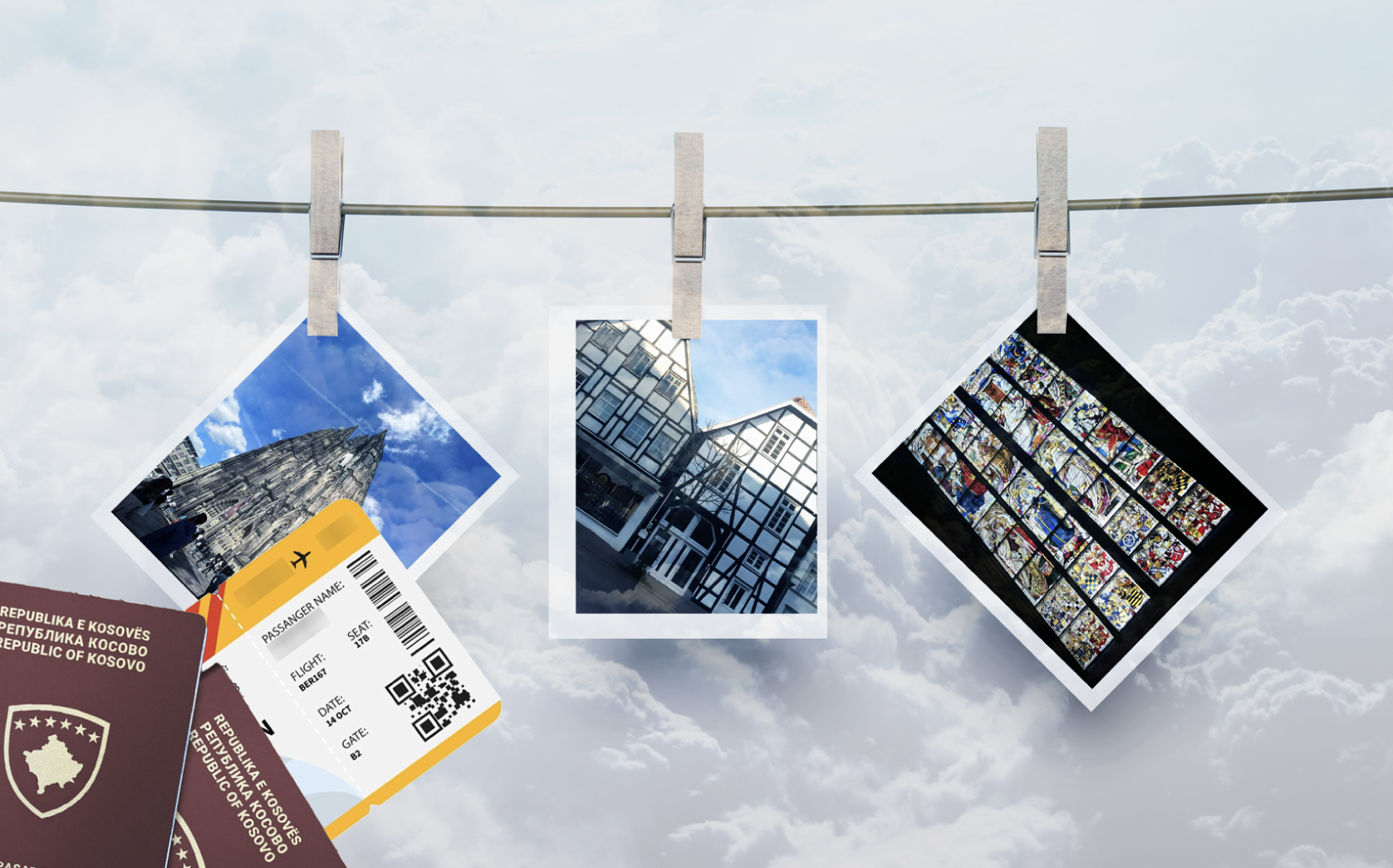
But still, it’s magical to be above the clouds
After my first trip, my life took a different path.
|05.12.2024
|
The word traffic jam should probably vanish from the German vocabulary; it likely never even crosses their minds to use it.

Valona Hasani
Valona Hasani is a journalist. She graduated from the University of Prishtina Faculty of Philology, Department of Journalism, and completed her master's degree at the Faculty of Education, Department of Pedagogy for Vocational Schools. She has worked as a journalist at T7 for over 3 years. In addition, she has authored research articles on social and environmental issues and writes for Gazeta Express in the culture section.
This story was originally written in Albanian.